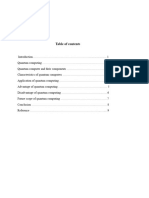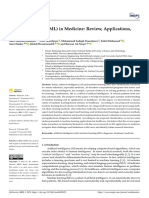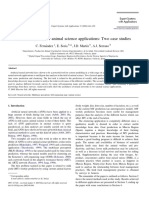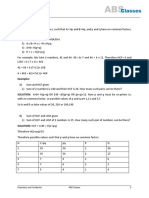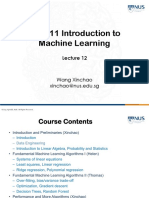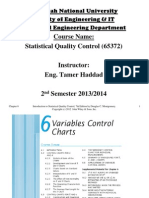0% found this document useful (0 votes)
56 views2 pagesQuantum Computing
Quantum computing utilizes the principles of quantum mechanics to perform complex calculations more efficiently than classical computers by using qubits that can exist in multiple states. Its potential applications span various fields, including drug discovery, financial modeling, cryptography, artificial intelligence, and logistics. Despite current challenges in stability and error correction, rapid advancements are being made, promising significant breakthroughs in the future.
Uploaded by
Ayoub LaamiriCopyright
© © All Rights Reserved
We take content rights seriously. If you suspect this is your content, claim it here.
Available Formats
Download as PDF, TXT or read online on Scribd
0% found this document useful (0 votes)
56 views2 pagesQuantum Computing
Quantum computing utilizes the principles of quantum mechanics to perform complex calculations more efficiently than classical computers by using qubits that can exist in multiple states. Its potential applications span various fields, including drug discovery, financial modeling, cryptography, artificial intelligence, and logistics. Despite current challenges in stability and error correction, rapid advancements are being made, promising significant breakthroughs in the future.
Uploaded by
Ayoub LaamiriCopyright
© © All Rights Reserved
We take content rights seriously. If you suspect this is your content, claim it here.
Available Formats
Download as PDF, TXT or read online on Scribd
/ 2






















